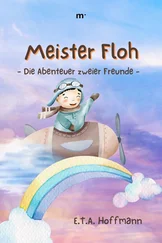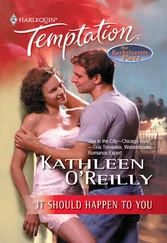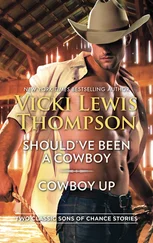“Can’t go on like this forever, though.”
“You’d be surprised. Some things can go on an awful long time.”
He clicked up the volume by a notch and said nothing further. I sat beside him with my paintbrush and stars, keeping company. On the television, the chunky kid raced headlong toward the climbing wall, then was knocked from his perch by a boxing glove flying out on a mechanical arm. His arms pinwheeled in the air on his way down to the water. The announcers shouted, Ohhhhhhhh!
“You fat fucker,” Elias muttered.
Cade
The quarry was at the end of a long road barely wide enough to hold a car. When they approached it back then—Cade and Elias, Piper and whoever else could fit into Elias’s converted bread-delivery van—broken chunks of asphalt rattled the tires. Now and then low-hanging oak branches brushed the windows, the leaves like aggressive hands. Then the land opened, the quarry lake came into view and Elias parked the van in the scrubby grass in the shade of the tree line. Ragged chunks of granite—some softball-sized, others large enough to stretch out on—littered the ground. A yellow knotted rope hung from a solid branch next to an outcropping of rock, high above the water.
They stripped down to their swimsuits in the shadow of the trees. Just past them lay the shimmering surface of the water, reflecting the treetops in a dark and lacy silhouette. Against it, the squealing teenagers in trunks and bikinis transformed into Indonesian shadow puppets. Treading water, slapping the surface in joyous half-drowning, then flipping like a dolphin and going under into the sudden thick silence. Cade moved through it like an eel. He loved the feel of his own physical symmetry, his resistant strength. Through some primitive sonar he sensed an edge, a wall, and he reached out and grabbed the narrow hip band of Piper’s bikini bottom, tugged. Her shriek penetrated the water, and he came up laughing, already ducking the swat of her hand.
On the ledge stood Elias, brown as toast from the sun, the Hawaiian flowers on his swim trunks blotched yellow and orange. Go, go . He heaved his arms back and then threw himself forward onto the rope, chest and stomach jiggling, and they loved him for it. The fat-kid smash into the water was epic. When Cade jumped in, nobody cared, but Elias drew a crowd. And then Piper scrambled up the rock, her body angular, a knife edge, her hair blunt-cut and threaded with summer blond. On the rope she was an acrobat. She flipped back and around, tucked and rolled, until she cut through the water long and lean and disappeared.
Disappearing: that was what Piper did. She lived down the road but left for months at a time on mysterious trips with her family, to summer camp, to ski. Once, when they were younger, she left for a year. She was never taken for granted. Elias loved her first. But her preferences were beyond Cade’s control, and Elias seemed to bear him no ill will when she singled out Cade for another kind of disappearing. Sometimes, together, they straddled the line between present and gone: on the shaded end of the quarry where a high subsurface ledge made the water shallow, there they could kiss and be ignored. But below the surface her hand worked down his trunks, and she plied him steadily, purposefully, until he came into the water in full view of every one of his friends, his brother, but of course they could not see a thing.
That summer they spent nearly all their free time with one another. Often they bought fireworks and, after building a campfire in the dirt-swept circle of the Olmsteads’ shooting range, set them off above the trees. On more than one occasion Elias singed his fingers and would hold them out, black tipped and smarting, for the girls to soothe with ice from the cooler. The range, deep in the woods as it was, hid everything. They drank whatever alcohol they could steal from the back of their folks’ top cabinets, then played squealing games of Duck Duck Goose, like little kids, around the fire. On one occasion, one of the other guys found a gun someone had left behind on the range. A box of ammo sat beside it, as though the owner had intended to target shoot but forgot about that particular weapon. Cade found a paper target without too many holes in it and clipped it to the pole. Then the whole group persuaded Elias, who was the best shot among them, to try to shoot out the bull’s-eye. He didn’t shoot out all the red in the center, but he hit it on the second shot.
Except Elias, they were all drunk on Jim Beam. Elias was heavier and could hold his liquor better. Cade got up and, jerking the sneaker from Piper’s kicking foot, climbed onto the stump between the two target poles. “I am William Tell,” he announced. He set the shoe on top of his head and added, “This is my apple.”
“It doesn’t smell like an apple,” someone shouted.
“Shut up,” Piper said.
“I cannot tell a lie,” he said, confusing his fruit legends due to the effects of the Jim Beam, and held out his arms for balance. “My brother Eli will shoot the apple from my head and we will all be saved.”
“From what?” Piper yelled.
“From the smell of your feet,” answered the guy who had brought the booze.
“Drum roll, please,” called Cade.
Someone thumped a rolling up-tempo against the cooler with his hands.
Cade looked at Elias, who stood, legs braced apart, at the shooter’s mark. He held the gun pointed at the sky, elbow bent, at the ready. “Aim true, brother,” said Cade.
Elias shook his head.
“Aw, c’mon,” Cade called, dropping character. “Straight through the middle. You can do it.”
“Didn’t say I couldn’t.”
“Hit the R, ” suggested Cade. “Make it say, ’eebok.’”
Elias shook his head again.
Cade stumbled backward and fell off the stump, and they all laughed. Piper scampered over and collected her shoe. After a little while someone threw up in the bushes, and then they all went home.
There were more afternoons at the quarry lake, more nights that summer at the shooting range, although they never saw that gun again. One evening, driving home, Elias spoke up in the silence. The van was empty except for the two of them. The Eagles played low on the radio, and the fan’s gentle rattle thrummed from the deep interior of the dash. Cade, barefoot, watched the clouds cast moving purple shadows against the mountains. He felt thoroughly content.
“I really wish you wouldn’t do that,” said Elias.
Cade looked at him. “Do what?”
“You know. With her. In the water.”
Cade absorbed that thought. He exhaled through his teeth, scoffing. “I’ll do anything I want with her, anywhere I want,” he said. “You would, too, if you could.”
Elias said nothing. Kept on driving home.
Everyone knew Elias had loved her first.
But Cade felt no remorse. Not then. Not later. May the best man win . And the best man always did; that was why he was the best.
And Elias said nothing because he knew this about Cade, and loved him in spite of it.
Jill
Only a few days after Elias told me the renters were gone, on a Sunday morning when Candy, Eddy and Leela were off at church with the boys, Dodge pressed the rest of us into service painting and cleaning the rental house. He even managed to bully Elias into coming along, handing him a paint roller and putting him in charge of the room that, judging by the crayon scribbles on the wall, had been the province of the now-evicted children. Cade was put on carpet-cleaning duty, while Scooter and I were sent to the porch to paint trim and lattice. I didn’t mind; the air outside was light and clear, more like spring than midsummer, and the view of the mountains from the porch of the shabby little place was breathtaking. From the corner of my eye I watched Scooter as he painted—he was a skinny caricature of a man, with giant work boots and a barbed-wire tattoo around his biceps that appeared sized for someone much larger. His thin wire glasses would have given him a scholarly look were it not for the cigarette he clenched between his lips like a cowboy, puffing as he worked. In a different town, coming from a different family, Scooter might have been another person entirely. The people I loved most—my mother, Cade and even Dave—all took pride in standing in defiance of their families’ expectations for them, and Scooter was the opposite of that. Yet something about him hinted at the raw material of a different sort of man—someone he might never become, but could be. I wondered what it was inside a person that set them on one path or the other, and if they chose it, or if it chose them.
Читать дальше












